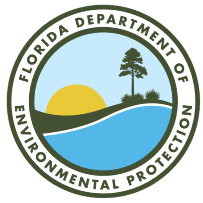Can I lease or sublease state-owned land?
Almost all state-owned lands are subject to existing leases. For any newly acquired lands, a land manager, or Lessee, will be identified. Typically, said lands are added to an existing lease (ex. 20 acres add to a State Park). Subleases can be approved by DEP, so long as, the entity is a duly registered, not-for-profit corporation, the sublease is directly related to the purpose of the primary lease, and the Lessee is in support of the sublease.
Can I lease or sublease state-owned land as a for-profit entity?
Use of state-owned uplands that will generate income or revenue, must be based on competitive bid. The BOT must review and approve the lease or sublease at a regularly scheduled meeting of the Governor and Cabinet. The BOT reserves the right to reject any and all bids. As most lands are already subject to a lease, it is imperative to discuss a proposed use with the Division of State Lands and the land manager, or Lessee.
What type of authorization is needed for access to gather scientific data?
From time to time, scientists or researchers would like to explore state lands to gather data for things such as threatened species counts, transects for species regrowth, vegetation samples, etc. In most instances, the land manager can be contacted for short-term access. In the event, authorization is needed from DEP, a Letter of Authorization is generally issued.
What type of authorization is needed for private access or for utilities?
Private access to private property or corridors for public/private utilities require easements. Requests for easements can be complex and granting of such requires a high level of review. Due to the many variables and site-specific conditions for easement requests, please refer to the Easement Information section.
What are conservation lands?
Most of the land owned by the State of Florida is classified as conservation land. If your proposed project impacts lands currently managed for conservation, outdoor resource-based recreation, or archaeological or historic preservation, or the land were purchased with conservation funds, it is classified as conservation lands by Florida law. There are special rules, requirements, and procedures for projects on conservation lands.
What if my project contains activities below the mean or ordinary high-water line?
Contact your local Florida Department of Environmental Protection district office to discuss your project. You can find out how to contact your FDEP district office by viewing the map and list at https://floridadep.gov/districts.
How long will the process take?
Submitting a complete application will help expedite the process. Once we receive a complete application, we will process it through the following steps:
- Technical Review – In this step, the application is reviewed to determine that the use is allowed and that the submitted documents meet the requirements laid out in rule and statute. Technical Review may include:
- A review of the sketch and legal survey for accuracy and completeness by Division of State Lands surveyors.
- A review of the state’s ownership of the lands you are requesting to use or manage.
- An appraisal of the proposed property rights to determine any applicable fees.
- Legal Review – In this step, the Department of Environmental Protection’s Office of General Counsel will review the proposed use and all the documents to ensure that the use is legal, the form of authorization is appropriate, and the documents are correctly drafted.
- Mailout – Once approved, the document will be emailed with instructions on how it should be signed and where it should be returned.
- Execution – After the signed document is received, it will be countersigned and returned. Once fully executed by all parties, the document is in full effect.
- Recording – Some documents require recording, or can prepared for such, upon request. We will provide additional instructions if this is the case.
Not all projects are the same. Some will require additional steps to review, while others will require fewer. In some cases, DEP surveyors, attorneys, title researchers, appraisers, or others may request additional documents from you that were not listed on the application checklist.



